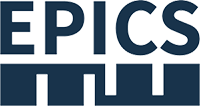
Windows
UEIDAQ Framework library uses the same API to access any devices from PowerDNA Distributed Ethernet I/O families. Using UEIDAQ Framework library dramatically cuts the amount of code needed to perform data acquisition and control tasks. UEI supports all versions up to the most current Windows 10.
The UEIDAQ Framework provides a set of C++ classes to easily interface your C++ programs with UEI data acquisition devices. The UEIDAQ Framework also comes with an ANSI-C API.

Linux
UEI offers extensive Linux drivers/support and example code for both Cube and RACK Chassis. These are factory developed and supported drivers. Though many DAQ firms have ignored the Linux market, or relegated their support to unofficial user forums, UEI provides complete drivers for their data-acquisition hardware, including factory support. All Linux drivers are included with the product and are available for download on our web site.

VxWorks
Whether replacing a legacy VME system or designing a new one, your fully COTS UEI system is smaller, more rugged and less expensive than VME or other I/O technologies. Run your VxWorks on your host PC or run standalone on UEI’s Cube or RACKtangle chassis. With over 60 I/O boards UEI’s sure to have the I/O you need and our 10-year availability guarantee ensures long term support while preserving your investment in VxWorks technology.

INtime
INtime support is included with the standard UEIDAQ Framework Windows software suite. Our INtime driver offers the same API as our Windows driver, making it very easy to convert a standard Windows application using PowerDNA to Real-time application.

QNX
UEI's support for QNX takes a special form due to that OS's architecture. The QNX SDK includes all the definition files and libraries you need to link into an application. Further, you get startup code as well as example programs with C source code that illustrate both software-clocked and hardware-paced analog inputs. QNX allows applications with root privileges to directly access PCI bus addresses and resources including interrupts. Thus the driver contains no read()/write()/ioctl() routines. We've implemented the PowerDAQ/DNA for QNX data acquisition and control driver as a library to link with user back-end applications (server).
















